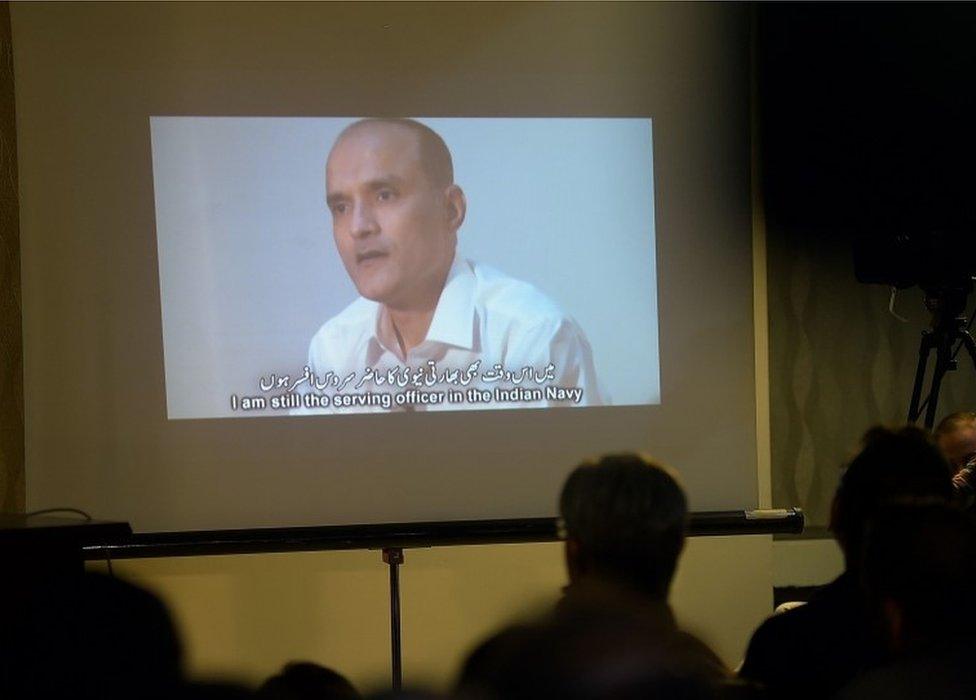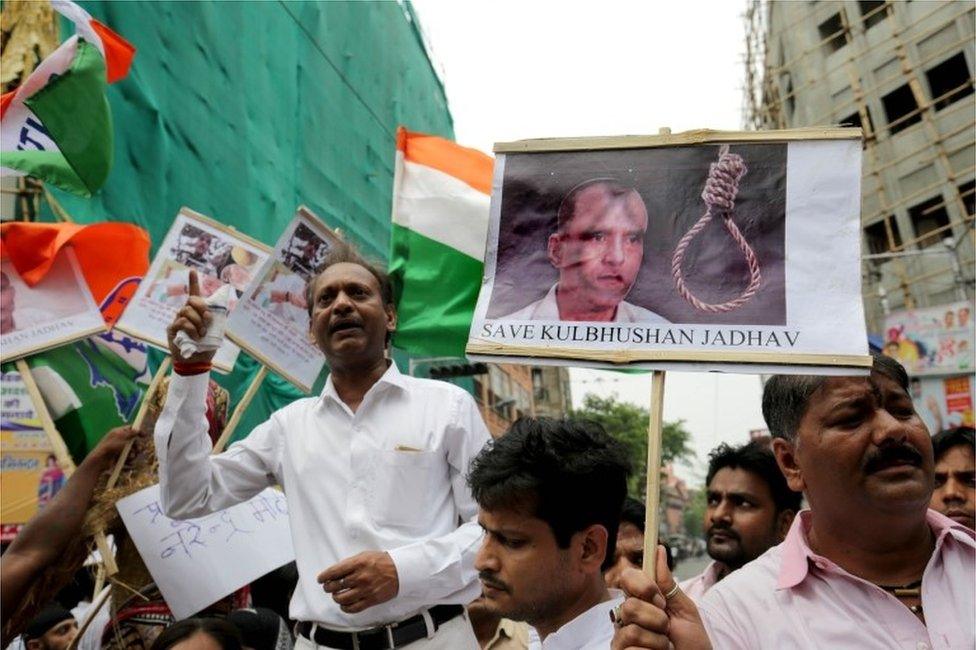UN court orders Pakistan not to execute Indian 'spy'
- Published

Jadhav was arrested in the province of Balochistan in March last year
A top UN court has ordered Pakistan not to execute a former Indian navy officer convicted on charges of spying until it has had time to hear a case brought by India.
India has argued in the International Court of Justice that Pakistan violated international laws by not allowing it access to Kulbhushan Sudhir Jadhav.
Mr Jadhav was arrested in Balochistan in March 2016 and convicted last month.
India denies Mr Jadhav is a spy, and Pakistan denies kidnapping him.
Sitting in The Hague, the court rejected Pakistan's argument that it did not have jurisdiction over the case, and said it would hear the case and seek arguments from both sides.
"It is appropriate for the court to order that Pakistan take all measures at its disposal to ensure Mr Jadhav is not executed before this court has given its final decision," court president Ronny Abraham said, external on Thursday.
"India has the right to seek consular access for Jadhav," he added.
India's case had no substance, the Pakistani government said.
"In our submissions on 15 May, we had assured the court unambiguously that Commander Jadhav would be provided every opportunity and remedy available under the law to defend his case," a statement said.

Who is Kulbhushan Jadhav?
The 46-year-old was a resident of Mumbai
He is the son of Sudhir Jadhav, a retired Mumbai police officer
A former officer, he was in the navy for more than a dozen years
His family says he quit the navy to start his own business and was working from Iran's Chabahar port
He is married and has children

The ICJ was set up in 1945 to rule on disputes between nations in accordance with international law.
The last time India and Pakistan took a dispute to the court was in 1999 when Islamabad protested against the downing of a Pakistani navy plane that killed 16 people.
The court had then decided it was not competent to rule in the dispute and closed the case.
Meanwhile, there are differing accounts of how and where Mr Jadhav was detained.

There have been protests In India against Pakistan's decision to execute Mr Jadhav
Pakistan says he was detained on 3 March 2016 in restive Balochistan province, which has been hit by a separatist insurgency that Islamabad accuses India of backing. India says he was kidnapped by Pakistan while he was in Iran.
The nuclear-armed neighbours have a long history of diplomatic spats, and Delhi and Islamabad often accuse each other of sending spies into their territories.
In November last year, Pakistan withdrew six officials from its mission in Delhi after they were outed as suspected spies by India.
It later leaked to the press the names and photos of eight alleged Indian spies working from India's mission in Islamabad.
But executions for spying are rare.
In 1999, Pakistan hanged Sheikh Shamim 10 years after convicting him of spying.
Sarabjit Singh died in prison in Pakistan in 2013 after more than 20 years on death row. Officials said he was attacked by other prisoners.